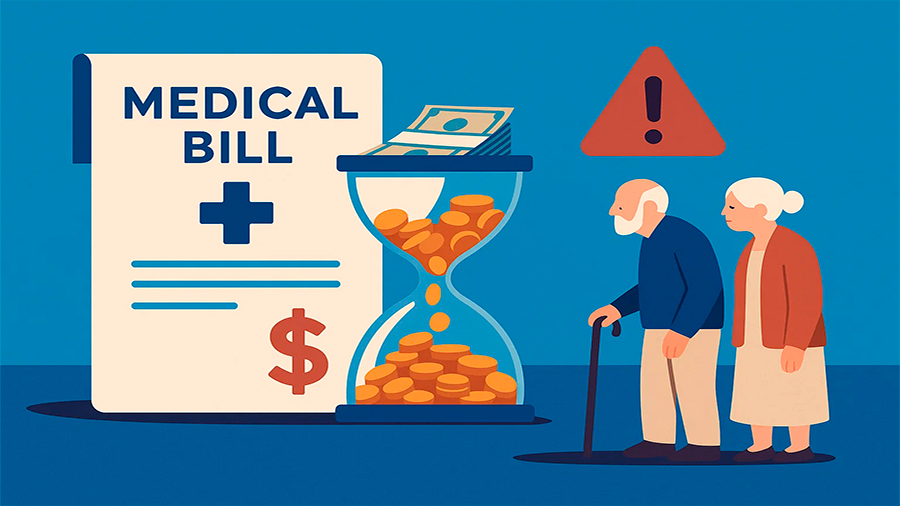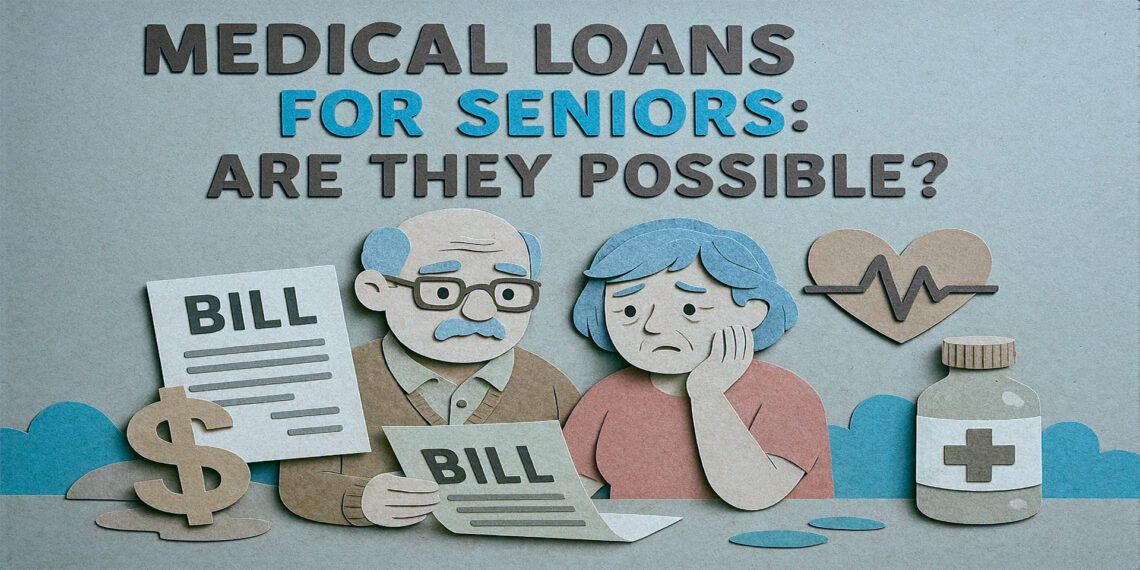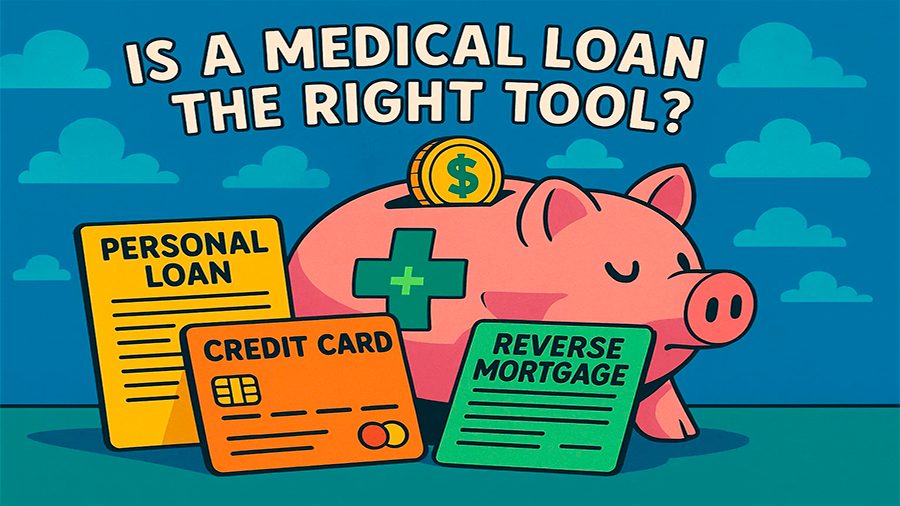Medical Loans for Seniors: Are They Possible?
Healthcare isn’t getting cheaper — especially in retirement. For seniors living on fixed incomes, an unexpected medical bill can hit hard. Whether it’s dental work, surgery, or assistive devices, out-of-pocket costs often fall outside what Medicare or supplemental insurance covers. Medical loans may seem like a lifeline, but are they truly available to older adults? And more importantly, are they safe, affordable, and worth it? Let’s break it all down, from who qualifies to which alternatives might make more sense.
What Are Medical Loans?
How They Work
A medical loan is simply a personal loan used to pay healthcare expenses. These can be issued by banks, credit unions, online lenders, or through a hospital’s financing partner. The borrower receives a lump sum and pays it back in monthly installments, usually with interest. In some cases, the lender pays the provider directly.
Common Uses for Seniors
Many older adults take out medical loans for dental procedures, hearing aids, eye surgeries, home care support, or post-hospital rehabilitation. These loans are often unsecured, meaning no collateral is required — but that also means higher risk for the lender, and usually higher interest rates.

Can Seniors Qualify?
Age Isn’t Always the Problem
Contrary to what some think, being a senior doesn’t automatically disqualify you from a loan. Most lenders don’t set hard age limits, though a few may cap loan approvals around age 75. The bigger factor is financial stability — especially income and credit history.
Income Challenges in Retirement
Because many retirees no longer earn regular paychecks, lenders look to pensions, Social Security, and distributions from retirement accounts as proof of income. But if those sources don’t add up to enough, approval may be difficult — or the terms more expensive.
Credit Score Considerations
Some seniors have excellent credit due to years of responsible borrowing. But others have thin credit files if they’ve used little debt in recent years. Either scenario affects the type of loan, interest rate, and repayment plan available.
Comparing Borrowing Options
Is a Medical Loan the Right Tool?
Medical loans can be useful — but they’re not the only option. Seniors often compare personal loans, credit cards, and reverse mortgages when looking to cover health expenses.
| Loan Type | Typical Interest Rate | Approval Speed | Best For |
|---|---|---|---|
| Personal Loan | 8% – 15% | 1–3 days | General needs |
| Medical Loan | 6% – 18% | Same day – 1 week | Specific treatments |
| Credit Card | 15% – 25% | Instant | Small urgent costs |
| Reverse Mortgage | Variable | 2–6 weeks | Homeowners 62+ |
Understanding the Terms
It’s important to check not just the interest rate but also fees, penalties, and repayment flexibility. Look for loans with:
- Fixed interest rates (no surprises down the line)
- No early repayment penalties
- Low or no origination fees
- Terms of 12–60 months, depending on the amount
Eligibility Requirements: What Lenders Look For
Income, Age, and Credit
Lenders typically weigh a few core criteria when evaluating an application. These include the borrower’s age, income, assets, and credit score.
| Criteria | Personal Loan | Medical Loan | Reverse Mortgage |
|---|---|---|---|
| Age Limit | Usually up to 75 | Often no strict limit | 62+ |
| Income Requirement | Yes | Yes | No |
| Collateral Needed | Not always | No | Yes (home equity) |
| Credit Score | 600+ | 620+ | Not critical |
Risks of Medical Loans for Seniors
Not All Loans Are Transparent
Some loans marketed to seniors promise “0% interest” or “easy approvals” but come with hidden conditions. If you miss a payment, retroactive interest may apply. Origination fees or high penalties for early repayment can also make what looked like a good deal far more expensive.
Pressure From Healthcare Providers
Be cautious of medical offices pushing their own financing partners without offering alternatives. They may receive incentives for referring patients, even if the loan isn’t the best fit for your financial situation.
Fixed Income and Payment Pressure
If you’re already budgeting carefully in retirement, adding another monthly bill could tip the balance. Many seniors underestimate how quickly loans can strain their finances — especially if interest rates increase or other expenses come up unexpectedly.
Alternatives Worth Considering
Payment Plans
Before borrowing, ask your provider if they offer an internal payment plan. Many hospitals and clinics allow patients to spread costs out over time, interest-free.
Assistance Programs
Look into nonprofit aid, veterans’ benefits, Medicare Advantage supplemental plans, or disease-specific foundations. Many offer grants or cost-sharing support for procedures that aren’t fully covered by insurance.
HSAs and FSAs
If you contributed to a Health Savings Account before retirement, you can use those funds tax-free to pay for qualified expenses — including dental, vision, and long-term care in many cases.
Family Support
Although it’s not always comfortable, discussing medical expenses with family could prevent the need for loans altogether. Crowdfunding or family loans may offer more flexibility than bank loans — and without the interest.
Tips for Safer Borrowing
Before You Apply
Make sure you fully understand the cost of the procedure and what portion you’re responsible for. Then, evaluate whether your income can comfortably support loan payments over the next 12–36 months.
What to Ask the Lender
- Is the interest rate fixed or variable?
- Are there fees for applying, early repayment, or late payments?
- Can the loan be paid directly to the provider?
- What happens if your income changes during repayment?
Clarity is critical. You want to borrow with confidence, not confusion.
The Conclusion
Medical loans for seniors are absolutely possible — but they’re not a one-size-fits-all solution. If you have a steady income, solid credit, and a manageable treatment cost, they can bridge the gap between care and affordability. But for others, safer and cheaper options may be right around the corner. The key is not rushing into anything. Explore, ask, compare — and make sure any debt you take on supports your health without hurting your finances long-term.






